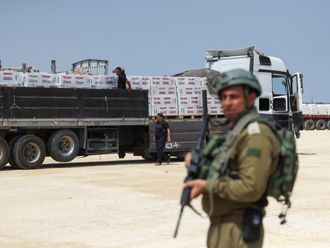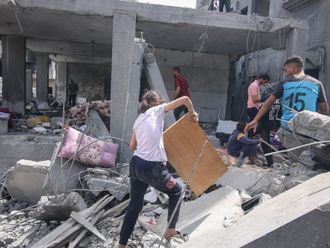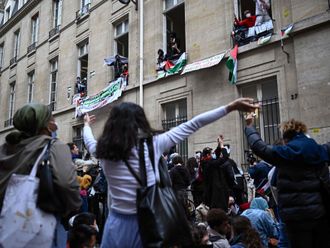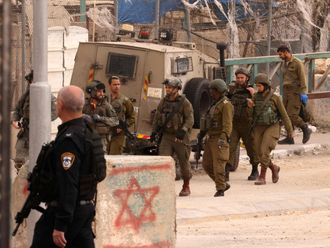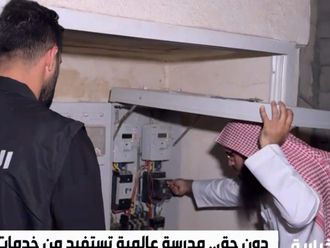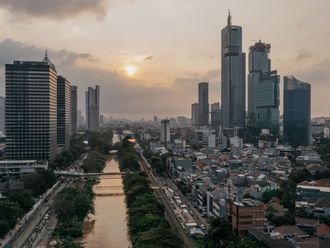Cairo: Two car bombs and an explosion struck on Wednesday in two eastern Libyan cities that are temporary homes to the nation’s elected parliament and government, inflicting an unspecified number of casualties, officials said.
The attacks were a worrisome new development in the turmoil roiling Libya, where hundreds of people have been killed in recent months, tens of thousands displaced, embassies shut and diplomats forced to leave the country.
The two car bombs went off in Tobruk, army spokesman Mohammad Hejazi said. They exploded in front of an oil institute but it was not immediately clear how many people were killed, he said.
Hejazi said the attack meant to “terrorise” state institutions and the parliament, as well as deliver a “we are here” message from militants based in the eastern city of Darna who have pledged allegiance to the Daesh group that seized large chunks of Iraq and Syria this summer and declared a caliphate in the Middle East.
Also on Wednesday, an explosion hit an airbase used for civilian flights in the eastern city of Bayda, which is home to the Libyan government, according to an airport employee who spoke on condition of anonymity because she was not authorised to talk to the media. It was not immediately clear if there were any casualties in the Bayda blast.
Libya’s elected parliament was forced to relocate to the far-eastern city of Tobruk after Islamist-allied militias took over the country’s capital, Tripoli, and the second-largest city of Benghazi after fierce clashes. Fighting is still under way in most of the country’s east, and another front line has opened in the far west of Libya amid clashes between rival militias.
Oil-rich Libya is going through its worst spasm of violence since the ouster and killing of long-time dictator Muammar Gaddafi in 2011.
After seizing Tripoli in August, Islamist-allied militias from the powerful western city of Misrata revived an old parliament and formed a government in the capital — effectively leaving the country with two rival parliaments and governments.
In October, Prime Minister Abdullah Al Thinni of the internationally recognised government joined ranks with former army General Khalifa Hafter in a military campaign that is trying to retake Benghazi from the militants.


